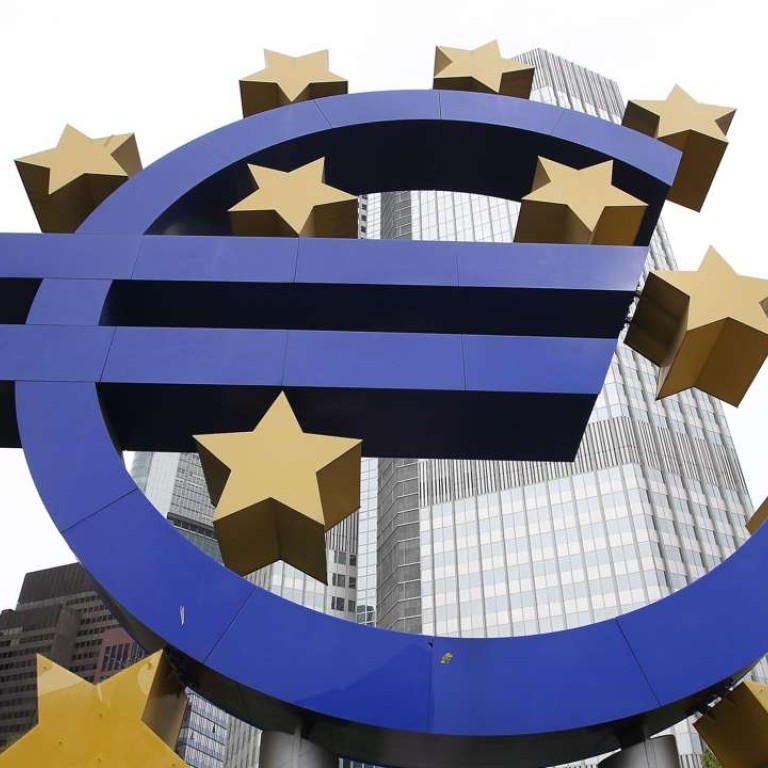
ECB’s Vienna meeting holds key to fragile European economy
Growing aversion to fiscal, structural reforms heightens political risks for policymakers
All eyes are on Vienna as the European Central Bank (ECB) gets ready to hold its regular interest rate-setting meeting.
Though it is one of the rare occasions when the ECB conducts a meeting outside of its headquarters in Frankfurt, the current deliberations are expected to have important economic ramifications for the euro zone.
Though the euro zone economic data, since the ECB launched its latest round of stimulus in March, has been fairly positive, the bloc’s inflation rate still remains woefully below the 2 per cent target. On the bright side, economic growth in the first quarter of this year, at 0.6 per cent year-on-year, even outpaced the expansions in the US and the UK, helping the economy of Europe’s single currency area regain the levels it achieved before the 2008 financial crisis.
But there have been concerns also. On Tuesday, Eurostat, the European Union’s statistical agency, warned that the euro zone was waddling in deflationary territory after the core inflation rate, which excludes volatile food and energy prices, stood at just 0.8 per cent, with wages growing at their slowest clip since the euro was launched in 1999.
Even as the ECB grapples with its inflation target — it will almost certainly have to provide further stimulus later this year — it faces another, potentially more serious, problem; the inability of European governments to undertake the necessary fiscal and structural reforms to put the bloc’s fragile recovery on a more secure footing and improve the effectiveness of the central bank’s own policies.
These are grave warnings from the institution that helped prevent the euro zone from breaking apart in 2012
In a sign of the extent to which Europe’s monetary guardian is concerned about the rising tide of populism and nationalism in many countries — the candidate of Austria’s far-right Freedom Party lost the decisive round of the country’s presidential election on May 22 by a mere 30,000 votes — political risks were cited as both a major impediment to reforms and a threat to financial stability in the central bank’s biannual Financial Stability Review, published on May 24.

“Rising political risks at both the national and supranational levels, as well as increasing support for political forces which seem to be less reform-orientated, may potentially lead to the delay of much-needed reforms” and “cause renewed pressure on more vulnerable [countries]”, the ECB said.
That may contribute to “contagion and re-fragmentation of the euro area,” the bank said.
These are grave warnings from the institution that helped prevent the euro zone from breaking apart in 2012 and has since been propping up the government bond markets of Europe’s most vulnerable economies, such as Portugal and Italy, through its large-scale asset purchase programme.
The ECB’s concerns are also an admission that monetary policy alone can do little to revive growth if governments’ economic reform agendas are being stymied by social and political opposition to so-called supply-side reforms aimed at lowering persistently high levels of unemployment across Europe and boosting productivity.
France, perhaps, epitomises best the economic and political challenges faced by the euro zone.
Over the past several weeks, the country has been hit by a series of debilitating strikes at oil refineries that have caused nationwide shortages and forced the embattled socialist government of President Francois Hollande to release the country’s strategic fuel reserves for the first time since 2010.
Trade unions are protesting against much-needed changes to France’s dysfunctional labour market that would make it easier for firms to strike deals with their staff on overtime and facilitate layoffs during economic downturns. The law had to be forced through parliament without a vote last month because of strong resistance within Hollande’s Socialist Party.
Hollande remains deeply unpopular with voters — unemployment has increased by over half a million since he became president in 2012 and still stands above 10 per cent — and is unlikely to qualify for the second round of France’s presidential election next year in which Marine Le Pen, the leader of the far-right National Front party, is expected to perform strongly.
Not surprisingly, Le Pen is trying to capitalise on the upcoming referendum on Britain’s membership of the European Union (EU), promising to hold an in-out plebiscite on France’s own membership of the EU if she becomes president.
While Le Pen is unlikely to win the election, her campaign for a “Frexit” (as opposed to a British exit from the EU, or ‘Brexit’) speaks volumes about the weak governance of the euro zone.
Many countries, notably France and Italy (which together account for nearly 40 per cent of the bloc’s output), are unwilling to surrender the economic sovereignty that is necessary to sustain Europe’s shaky monetary union.
The ECB knows this and, not surprisingly, is increasingly concerned.

